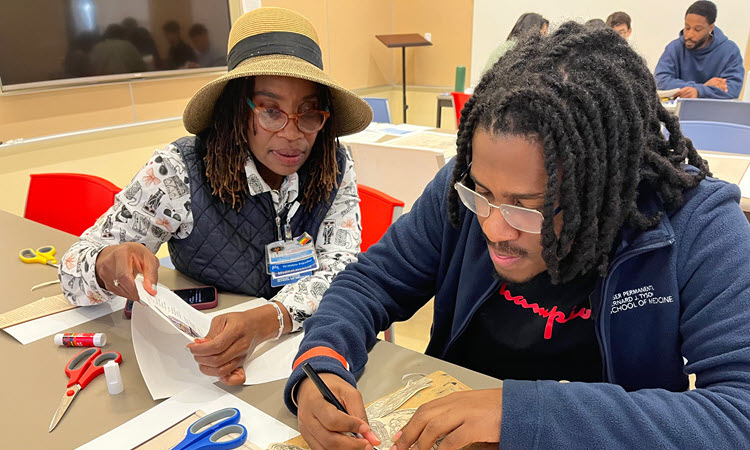The Kaiser Permanente Bernard J. Tyson School of Medicine (KPSOM) has announced that four faculty members have been jointly awarded the American Association of Medical Colleges’ (AAMC) Competency-Based Education in Telehealth Challenge grant to accelerate competency-based medical education in telehealth.
The two-year award will build on the innovations developed by KPSOM in equity, inclusion, and diversity (EID), simulation of patient care, and telehealth curricula, and pair those with Kaiser Permanente’s long history leading the field in telehealth delivery in both Graduate Medical Education and its integrated health system.
Co-principal investigators Jung Kim, MPH, PHD, Assistant Professor of Health Systems Science; Marc Klau, MD, MBA, Director for Clinical Integration and Assistant Professor of Clinical Science; Nicole Lawson, PHD, Assistant Professor of Health Systems Science; and Candace Pau, MD, Assistant Professor of Clinical Science, will collaborate with teams across the Kaiser Permanente health system and KPSOM to develop a curriculum blueprint, design telehealth modules and simulated patient cases, and evaluate equity, inclusion, and efficacy of their project via quality-of-care measures and the KPSOM EID scorecard.




